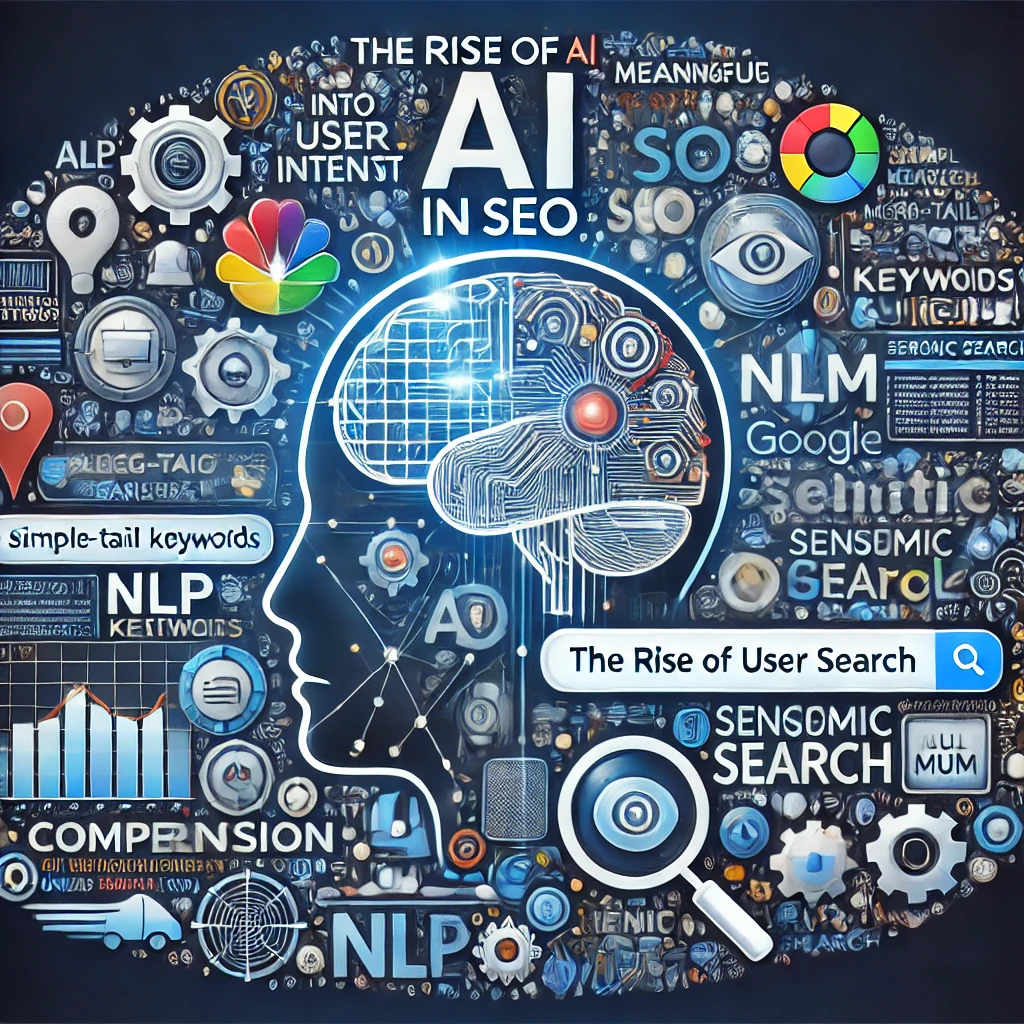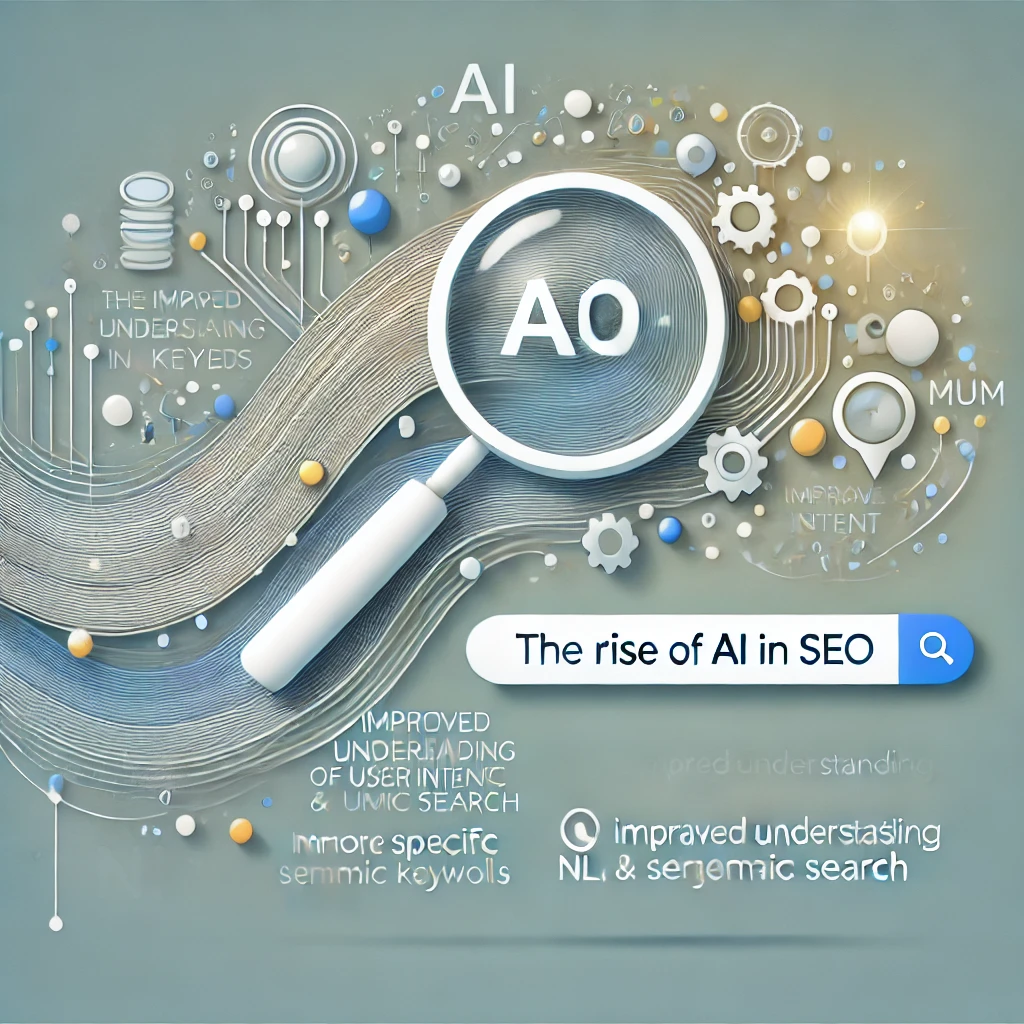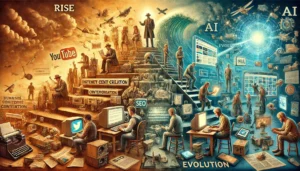Last Updated on September 4, 2024 by factkeeps
The Rise Of AI In SEO: Search engine optimization (SEO) is evolving and artificial intelligence (AI) will play a massively important role in this transformation. And it is an essential part of the tool to be used in a dynamic process since, as search engines are constantly seeking refinement, being able to implement AI-driven SEO strategies will put businesses one step ahead of their competition. This article looks at the most significant trends and after-effects of AI within SEO practices so as to illustrate a corresponding path for resolving this changing terrain.
Table of Contents
Increased comprehension of user intent | The Rise Of AI In SEO
However, a lot of this is down to AI technologies (in particular in the area natural language processing [NLP]) getting better and search engines are doing an improved job now interpreting user queries through NLP. This realignment highlights trying to understand what searches are for rather seek out just frequency of use in queries. The Rise Of AI In SEO
SEO and NLP: How search engines work? The Rise Of AI In SEO:
Google BERT & MUM: Google’s BERT is one of the more well known examples in action and their newest model, MUM (Multitask Unified Model). These models can assist in understanding the search query at a high level i.e., interpreting among context, which has led to more relevant results. The Rise Of AI In SEO

Effect on SEO Tactics: Now, the greater part of a successful search engine optimization approach is to create proper content that addresses user intent. This consists of knowing what users may ask and how to deliver an extended, content-heavy response. The Rise Of AI In SEO
Case Studies and Examples The Rise Of AI In SEO:
Current search results: This case-study segment will discuss which queries had the ranking updates due to BERT and show how it has transitioned from keyword specific content, To Intentful.The Rise Of AI In SEO
Adopt Semantic Search and Long-Tail Keywords Shift
The use of AI can track relationships between words and suggest semantic searches, which interpret queries in context.
Understanding Semantic Search
Semantic Search: A search technique whose goal is to provide only the most relevant results, not just those that match a query using keywords.
Long-tail keywords: Long-tail keywords are longer and more specific keyword phrases, which people use when they want to find something particular.
Why to Target on Long-Tail Keywords
Targeting Niche Markets: Long-tail keywords are an excellent resource for businesses to target niche markets more efficiently. E.g., a business that sells green products could use long-tail keywords like household biodegradable cleaning products to match top need of customers.
More Conversion: The conversion higher up there with long-tail keywords, thanks to the targeted nature of these searches.
How to Implement Semantic Search Strategies
Content Creation Tricks: These can include anything from massive guides, FAQs, Articles covering different facets of the intent for just one topic.

With the advent of AI, we now have access to tons of keyword optimization tools such as Google Keyword Planner and SEMrush which make it ten times easier for Content Writers to identify and optimize towards long-tail keywords.
Search result personalization
It is becoming more and more personal which user profile that AI understands in a matter of milliseconds through searches made by the users.
How Personalization Works
User Data Analysis: Search engines gather and analyze data on your behavior, including what you do online, where you are located, searches that have been done from the same device or locally to tailor search results.
Features or Benefits of Personalized Content Delivery: Native search results catered to the unique user create a more satisfying and engaging experience.
Implications for SEO
Developing Customized Content: The corporate must generate articles which are focused to a variety of person personas. For instance, an e-commerce site might provide product recommendations… based on a history of purchases.
Local SEO: Personalisation further highlights the need for local search engine optimisation; make sure businesses are targeting content that is relevant to users in specific locations.
How AI Tools are Integrated in SEO Processes
Soon after that SEO started to get augmented with AI-driven tools such as keyword research, content optimization, predictive analytics more.
Key AI Tools for SEO
AI-Powered Keyword Research Tools : AI-powered tools like Ahrefs and Moz are able to analyze massive data sets in order to find the best keywords for your content – or even identify trends that have not yet fully materialized.
Content Optimization: Clearscope, MarketMuse are the tools that analyze top-performing content and provide effective measures to optimize authorative content for better search visibility.
Predictive AI: Future trends on search patterns should help businesses stay ahead of the curve.
Benefits of AI Tools
Efficiency and Accuracy: AI tools are able to process huge amounts of data in a very short period, way quicker than what could be possibly extracted manually.
Strategic Insights: AI tools can mine trends and learnings from the behavior of users, helping businesses in optimizing their SEO strategies for enhanced results.
The Emergence of AI-Content
The impact of AI is also apparent on content creation as well, with the use of artificial intelligence in improving quality and efficacy behind numerous companies engaging into high-performance portfolio businesses.
AI in Content Creation
Content Generation Tools – These are tools generating high-quality content fast like OpenAI’s GPT-3 or Jasper and enabling businesses to scale their contents efforts.
Boosting Content Quality: Through AI, content can be enhanced with topic ideas suggestions, readability enhancements and real-time SEO adherence.
The balancing act between AI and human oversight
Keeping It Real: No matter how quickly AI-generated content processing can be, real success comes to those who achieve authentic and on-topic created by keeping a keen human authorship guard. For instance, a blog post written by AI can be checked and modified through an actual person to make it more personalized and ensure specificity.
Ethics: Companies will have to be wary of the various ethical concerns about creating Content using AI that is not plagiarising, native transparent to there audience.
Challenges and Adaptation
While artificial intelligence opens up a whole new world of possibilities, it also means challenges like for instance the risk of job loss in SEO jobs.
ADDRESSING FEARS OF JOB DISPLACEMENT
AI should be considered as a tool to supplement the capabilities of humans rather than replacing them. This way, SEO professionals can work on the strategic and creative parts of their roles while delegating repetitive and data-intensive tasks to AI.
Learn and Train: Change is the only constant. SEO professionals need to up-skill and stay current with the latest AI technologies, as well optimization practices.
Adapting SEO Strategies
Always-Monitoring and Rework: SEO is dynamic. Operationalize AIAdapting your strategies and staying abreast of advancements is essential; businesses need to be vigilant, or face the risk-correction dilemma. It can include conducting regular content audits, refreshing old articles and testing out new SEO methods.



